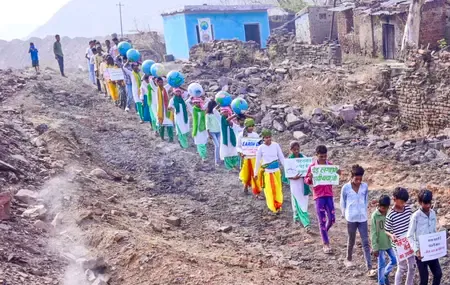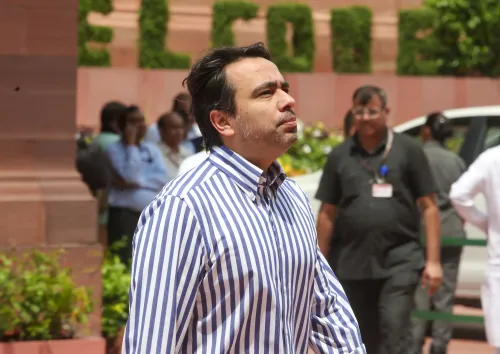Is the Cabinet Approving a Rs 5,940 Crore Revised Jharia Master Plan?

Synopsis
Key Takeaways
- The Cabinet has approved a budget of Rs 5,940.47 crore for the Jharia Master Plan.
- Focus on addressing underground fires and land subsidence.
- Support for rehabilitation of affected families with financial grants and credit access.
- Infrastructure development is a key component of the resettlement strategy.
- Skill development programs will enhance economic independence for families.
New Delhi, June 25 (NationPress) The Cabinet Committee on Economic Affairs, led by Prime Minister Narendra Modi, has recently approved the revised Jharia Master Plan with a budget of Rs 5,940.47 crore. This initiative is designed to tackle critical issues such as underground fires, land subsidence, and the resettlement of families affected by these challenges in the Jharia Coalfield.
The plan adopts a phase-wise strategy, prioritizing the management of fire hazards and land subsidence, along with the rehabilitation of vulnerable communities as highlighted in the statement following the CCEA meeting.
The revised Jharia Master Plan (JMP) places a significant focus on creating sustainable livelihood options for families being relocated. Skill development programs are set to be implemented, and new income-generating opportunities will be established to promote economic independence among those being rehabilitated.
Additionally, the plan proposes a livelihood grant of Rs 1 lakh and access to credit support of up to Rs 3 lakh for both Legal Title Holder and Non-Legal Title Holder families, as detailed in the official announcement.
Moreover, essential infrastructure and amenities—including roads, electricity, water supply, sewerage, schools, hospitals, skill development centers, community halls, and other communal facilities—are planned for development at the resettlement sites. These initiatives will be executed in accordance with the recommendations from the Committee for Implementation of the Revised Jharia Master Plan, ensuring a comprehensive and compassionate rehabilitation process.
As part of the support for livelihoods, a dedicated Jharia Alternative Livelihoods Rehabilitation Fund will be created to facilitate livelihood-related projects. Skill development programs will also be conducted in collaboration with Multi Skill Development Institutes in the area, as mentioned in the statement.
The Jharia coalfield, located in Jharkhand, India, is grappling with severe challenges stemming from long-standing underground coal fires, land subsidence, and related environmental and health issues. These complications are the result of historical mining activities and the intrinsic challenges of extracting coal in the region.
The underground mining operations, combined with the persistent fires, result in land subsidence, causing the surface to collapse or sink. This phenomenon poses a significant threat to both residents and infrastructure.









